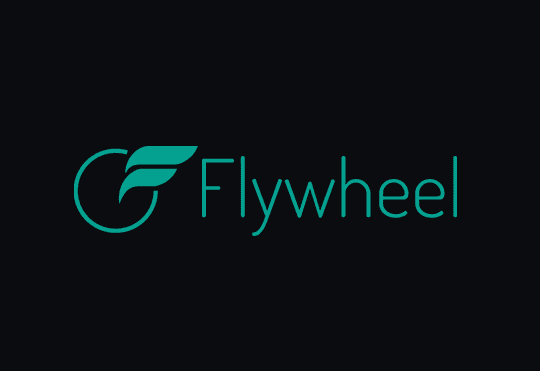Flywheel Studio
TLDR: Here's our work with Flywheel
Organic Traffic Growth: +81.25% increase
Active Users: +11.7% increase
Sessions: +7.8% increase
Backlink Growth: +17.44% increase
New Keywords: +61.36% increase
Introduction
Flywheel Studio, a company specializing in mobile and web app development, sought to enhance its online presence, increase organic traffic, and position itself as a thought leader in the industry. Over a 3-month period, we introduced an engineering blog that showcased internal projects and technical expertise. This blog was a key part of our comprehensive SEO strategy, which resulted in significant growth in traffic, keyword rankings, and domain authority.
Challenges
Limited Organic Traffic: The Flywheel Studio website had minimal organic traffic, with few pages ranking for high-value keywords.
Lack of Thought Leadership: Flywheel Studio had strong internal technical expertise but lacked visibility as a thought leader in the industry.
Low Domain Authority: The site needed higher-quality backlinks and more authoritative content to improve its domain ranking.
Objectives
Increase organic traffic by at least 30% by driving more engagement through informative and educational content.
Build a new engineering blog to showcase the company’s technical expertise and draw in relevant traffic.
Improve domain authority (DR) and keyword rankings.
SEO Strategy
1. Introduction of the Engineering Blog
As part of the content strategy, we launched an engineering blog that shared Flywheel Studio’s internal projects, tools, and technical know-how. This was aimed at both attracting high-intent traffic and improving engagement with developers and potential clients.
Blog Content Focus: The blog posts covered a wide range of topics, from project case studies to technical tutorials, and even internal tools and processes that Flywheel Studio uses. This helped create valuable, keyword-rich content that appealed to both technical professionals and potential business clients.
SEO for Blog:
Keyword Research: We researched long-tail and high-intent keywords related to engineering, software development, and internal processes to optimize blog titles and content.
Content Optimization: Blog posts were structured with SEO in mind, including keyword-rich headers, meta descriptions, and internal linking to relevant service pages.
Publication Cadence: Regular blog updates were maintained to keep content fresh and continuously engage readers.
2. Content Marketing & Thought Leadership
By positioning Flywheel Studio as an industry thought leader through the engineering blog:
Attracting Backlinks: The blog provided informative and high-quality content that encouraged backlinks from other tech blogs, forums, and websites.
Increased Engagement: The blog helped increase user engagement by providing useful and relevant content that users could share across platforms, boosting organic reach.
3. Keyword Research and Content Optimization
Beyond the blog, we also optimized existing service and project pages to align with user search intent. New keyword-rich content was created for pages related to Flywheel’s core services.
4. Off-page SEO and Backlink Strategy
We actively sought to acquire backlinks from technical publications, guest posts, and partnerships, highlighting the engineering blog as a valuable resource for learning and development.
Results: Improvement Over 3 Months
With the launch of the engineering blog and a targeted SEO strategy, Flywheel Studio saw significant improvements across key performance metrics:
1. Organic Traffic Growth
Starting Point: 48 organic visits per month
End of Campaign: 87 organic visits per month
Growth: +81% increase in organic traffic driven by new blog posts and optimized content.
2. Engineering Blog Impact
Blog Performance: The engineering blog attracted 500+ page views in the first three months, with an average time on page of 3 minutes, indicating strong reader engagement.
New Keywords: The blog contributed to 10 new keywords ranking on Google’s first two pages, particularly around terms related to internal tools and technical tutorials.
3. Keyword Rankings
Starting Point: 44 organic keywords
End of Campaign: 71 organic keywords
Growth: (+61%) +27 keywords, with the blog accounting for a significant portion of new rankings.
4. Domain Authority and Backlinks
Starting Point: 86 referring domains, Domain Rating of 43
End of Campaign: 101 referring domains, Domain Rating of 41
Growth: +29 backlinks, with many high-quality backlinks coming from tech blogs and forums that cited Flywheel’s engineering content.
5. User Engagement (Google Analytics)
Active Users: Increased to 2.6K active users (+11.7%)
Sessions: 3.5K sessions (+7.8%) showing increased repeat visitors.
6. Improved Click-Through Rates (Google Search Console)
CTR: Improved to 1.9%, largely driven by blog posts with engaging meta descriptions and titles optimized for user intent.
Key Takeaways
Engineering Blog Success: The introduction of the engineering blog proved to be a pivotal part of Flywheel Studio’s SEO strategy. It helped generate traffic, attract high-quality backlinks, and establish Flywheel Studio as a thought leader in the industry.
Organic Traffic Growth: Content optimization, combined with the new blog, led to a significant growth in organic traffic and user engagement.
Backlink Acquisition: Publishing technical content in the blog encouraged natural backlinks from reputable websites, which strengthened the domain authority and helped with higher keyword rankings.
Conclusion
The 3-month SEO campaign for Flywheel Studio, including the launch of the engineering blog, significantly improved the company’s online visibility, authority, and engagement. By leveraging the company’s internal expertise and showcasing it through the blog, Flywheel positioned itself as a valuable resource in the web and mobile app development industry.
Moving forward, Flywheel Studio will continue to publish insightful blog content, further optimize for search, and expand its backlink profile to sustain growth in organic traffic.
